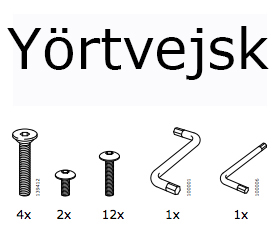The 10 rules of co-production
Just a little reminder about the rules, so they’re all in one place
#1 Nothing… starts on time
Be patient. Remember people have lives.
#2 Research, research, repeat
Know your subject backwards and then forget everything
#3 Proper Preparation Prevents Poor Performance
Make sure you are tooled-up for the journey
#4 Find your gatekeepers
Find those key-holders and password-knowers
#5 Whoever comes, they are the right people
If it’s only 5 or if it’s 50, they are the right people
#6 Be human
Smile, small talk, pass compliments
#7 Expect the unexpected
It will happen
#8 Plan proactively, practice reactively
Improvise and don’t worry
#9 It’s OK to be human
And it’s OK to care
#10 Listen
Above everything else, listen.
#11 Make sure you have some good boots
Pretty sure I mentioned these, but just in case.

And alongside the rules, remember…
Be patient
Be passionate
Be curious
Don’t panic
And what else, when all this is over?
When all is done, your outputs are out there, the community is happy, and the evaluation forms have gone, you will feel hollow and melancholic.
The community you have been a part of are your friends, and you will miss them – their voices, their laughter and those amazing cakes. This all normal. This is the part of community engagement the co-production theorists don’t tell you about, but I have. I feel it every single time.
Think about what you achieved in those few short weeks or months. Remember the enthusiasm and the positivity you felt. Remember the stories you’ve heard and the sights you’ve seen.
Give yourself a round of applause or a pat on the back. Buy yourself a treat, because you deserve it. You did something extra-human, extra-ordinary and unique. You are good human being and a great co-production facilitator.
Spend a few days thinking about what you managed to create. Think about what went wrong. And not everything will have worked. Not everything you hoped to achieve will have been possible, though you’re probably not going to have been thwarted by a pandemic, as was the case with the Inch project.
Think about things you’d do different. Think about all you’ve read in this guide, and think about the way you’d write it, and do it better than I have.
A little reflective practice is a remarkable thing. It tunes us into future possibilities, reinforces our confidence and allows us to dream a little.
That Nörsjek coffee table is spectacular, so maybe you should try the matching Yörtvejsk cabinet next.

It’s built with the same tools. That’s the thing about co-production and IKEA. When you’ve done one, the next one is so much easier, and makes so much more sense.
PS…
And a final final word, which I had thought to include but forgot. If there were a motto to suit participatory engagement and community co-production, then I can think of no better than Henry David Thoreau’s words…
‘It is something to be able to paint a particular picture, or to carve a statue, and so to make a few objects beautiful; but it is far more glorious to carve and paint the very atmosphere and medium through which we look, which morally we can do. To affect the quality of the day, that is the highest of arts.‘
That is what I try do every day, and it’s something we all should aspire to in our work and in our lives.



